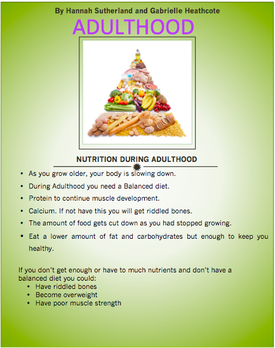
Proper nutrition is crucial for healthy growth and development in children. It’s important to ensure they receive the right balance of nutrients at each stage of their childhood. This article will discuss the nutritional needs of children during different stages of their growth and development, from infancy to adolescence.
Infancy (0-12 months)
The first year of a child’s life is a crucial period for growth and development. During this stage, breast milk or formula is the primary source of nutrition for infants. Breast milk is highly recommended as it provides all the essential nutrients needed for optimal growth and development. It contains antibodies that help build the baby’s immune system and protect against infections.
For those unable to breastfeed, infant formula is a suitable alternative. It is specifically designed to mimic the nutrients found in breast milk. Formula-fed infants should be given iron-fortified formula to prevent iron deficiency anemia, a common problem among infants.
In addition to breast milk or formula, infants can start consuming solid foods around six months of age. At this stage, pureed fruits and vegetables, iron-fortified cereals, and pureed meats can be introduced gradually. It’s important to introduce new foods one at a time to monitor for any potential allergies or intolerances.
Toddlerhood (1-3 years)
During the toddler years, children undergo rapid growth and increased physical activity. Their nutritional needs change as they transition from a primarily liquid diet to consuming a wider variety of solid foods.
At this stage, a balanced diet should consist of fruits, vegetables, whole grains, lean proteins, and dairy products. Toddlers should be encouraged to eat a variety of colorful fruits and vegetables to ensure they receive a wide range of vitamins and minerals. Whole grains, such as whole wheat bread and brown rice, provide essential fiber for healthy digestion.
Protein-rich foods, such as lean meats, poultry, fish, eggs, and legumes, are essential for growth and development. Dairy products, such as milk, yogurt, and cheese, provide calcium and vitamin D for strong bones and teeth.
Toddlers have small appetites and may be picky eaters. It’s important to offer a variety of nutritious foods and avoid pressuring them to eat. It’s normal for toddlers to have fluctuations in appetite and food preferences.
Preschool to Early School Years (4-8 years)
During this stage, children’s growth rate slows down and their nutritional needs become more stable. However, it’s still important to provide a balanced diet to support their ongoing growth, development, and overall health.
A well-rounded diet should include a variety of fruits, vegetables, whole grains, lean proteins, and dairy products. Encouraging children to participate in meal planning and preparation can help promote healthy eating habits.
This is also the stage where children may start developing their food preferences and tastes. It’s important to continue offering a variety of foods and being patient with their choices.
Adolescence (9-18 years)
Adolescence is a period of rapid growth and development, both physically and mentally. Proper nutrition during this stage is essential to meet increased energy requirements and support hormonal changes.
A balanced diet for adolescents should include a variety of nutrient-dense foods such as fruits, vegetables, whole grains, lean proteins, and healthy fats. Adequate calcium intake is particularly important during this stage to support the development of strong bones and teeth. Foods rich in iron, such as lean meats, poultry, fish, beans, and leafy green vegetables, can help prevent iron deficiency anemia.
During adolescence, there’s a higher risk of developing eating disorders and unhealthy eating habits. It’s crucial to promote a healthy body image, encourage regular physical activity, and educate adolescents about balanced nutrition.
Conclusion
Proper nutrition plays a vital role in the growth and development of children at each stage of their childhood. From infancy to adolescence, their nutritional needs change, but a balanced diet with a variety of nutrient-rich foods is always essential. Paying attention to each stage’s unique requirements will ensure children have the best chance for healthy growth, development, and overall well-being.

